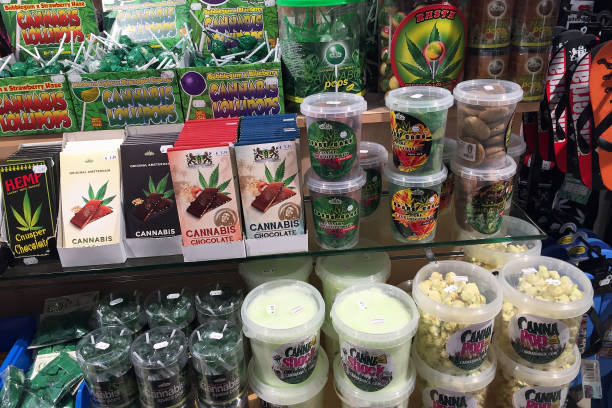
The Impact of Farm Bill Legislation on the Availability of Hemp-Derived CBD Products
Posted by on 2024-03-07
The Farm Bill, particularly its 2018 iteration, revolutionized the agricultural and commercial landscapes by legalizing hemp at a federal level. This pivotal legislation redefined hemp as cannabis with less than 0.3% THC (tetrahydrocannabinol), thus separating it from its psychoactive counterpart, marijuana. The impact of this legislative shift on the availability of hemp-derived cannabidiol (CBD) products has been profound and multifaceted.
Prior to the enactment of the 2018 Farm Bill, hemp was classified alongside marijuana under the Controlled Substances Act (CSA) as a Schedule I drug, which greatly restricted cultivation, research, and commerce. As such, CBD products derived from hemp were ensnared in a legal gray area that deterred mainstream retailers from carrying them and dissuaded consumers due to concerns about legality.
With the passage of this bill came an unprecedented surge in accessibility to these non-psychoactive cannabinoid products. Hemp's reclassification opened floodgates for farmers across America who were eager to diversify their crops with this versatile plant known for its rapid growth cycle and minimal need for pesticides.
This newfound freedom sparked a green rush of sorts; businesses sprang forth to capitalize on consumer interest in CBD's purported therapeutic benefits—ranging from anxiety relief to pain management without intoxicating effects. The market saw an influx of tinctures, topicals, edibles, capsules, and more—each offering users various ways to incorporate CBD into their wellness routines.
However, while the bill federally legalized hemp cultivation and sale thereof for extracts like CBD oil, it also bestowed regulatory powers upon states and federal agencies like the Food and Drug Administration (FDA). This meant that while growing hemp became universally permissible within US borders, individual states could impose their own restrictions on production and sales.
Moreover, despite removing hemp from Schedule I status under CSA laws governing controlled substances do not directly pertain to food or dietary supplements—which is where many CBD products sit categorically. Consequently, FDA guidelines regarding CBD as an additive or health product remain ambiguous; thus creating confusion among manufacturers about what claims they can legally make concerning their goods' health benefits.
As regulators grapple with establishing comprehensive policies for ensuring safety standards within burgeoning industry stakeholders must navigate patchwork state regulations coupled with unclear FDA stance over marketing practices related health claims made on packaging promotional materials.
In summing up impacts farm bill legislation availability hemp-derived cbd products one cannot ignore dramatic increase consumer access juxtaposed ongoing challenges posed by evolving landscape oversight enforcement certain aspects related commerce still being ironed out bodies responsible public welfare protection against false misleading advertising moreover industry itself continues mature we expect see further clarity guidance emerge help solidify trust between producers consumers alike ensuring sustained growth sector built sound ethical foundations rather than merely capitalizing momentary hype surrounding well-being trend.